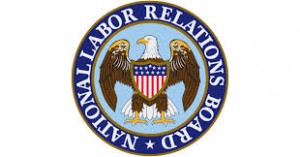The National Labor Relations Board (NLRB) on Thursday, August 27, 2015, handed down one of its biggest decisions of President Obama’s tenure,  ruling that companies can be held responsible for labor violations committed by their contractors. While the ruling from the independent agency specifically deals with the waste management firm Browning-Ferris, the so-called “joint employer” decision could have broad repercussions for the business world, particularly for franchise companies.
ruling that companies can be held responsible for labor violations committed by their contractors. While the ruling from the independent agency specifically deals with the waste management firm Browning-Ferris, the so-called “joint employer” decision could have broad repercussions for the business world, particularly for franchise companies.
At issue in the case was whether Browning-Ferris was responsible for the treatment of contracted employees. The Houston-based company hired Leadpoint Business Services to staff a recycling facility in California.
The labor board determined Browning-Ferris should be considered a “joint employer” with the Phoenix-based staffing agency. As a result, the company can be pulled into collective bargaining negotiations with those employees and held liable for any labor violations committed against them.
The NLRB ruling is a sharp departure from previous decisions that stated companies were only responsible for employees who were under their direct control. Without the power to set hours, wages or job responsibilities, the earlier rulings held, companies could not be held responsible for the labor practices of the contractors.
But the National Labor Relations Board charted a new course Thursday, saying the old standard is “increasingly out of step with changing economic circumstances.”
The implications of this decision are immense. Millions of franchises are at risk of being told that they are joint employers with parent companies such as Jiffy Lube, Dunkin Donuts, or H & R Block. Millions of subcontractors may find that the company that is employing them has morphed into a boss. This raises the costs of doing business, encouraging companies to reorganize or go offshore.
What are the implications for Home Care?
As we have followed the development of this story, we see huge potential implications for the home care industry. First is the impact on franchising. Our most recent research shows that there are 59 companies offering franchises for in-home care. There are about 6,500 franchise locations. For the most part, each franchise is an independent business.
Even though Browning-Ferris did not concern a franchisor-franchisee relationship, the NLRB’s expanded view of joint employment is also bad news for franchisors, which the Board has targeted as alleged joint employers of the workers of their franchisees. Now, The NLRB is saying the the franchisor – Home Instead, Comfort Keepers, Senior Helpers, or Visiting Angels – is a “joint employer” of all of the caregivers employed by the local franchisee. This will open the door for unionization of caregivers, and for class action suits regarding employment issues.
IFA Responds
The International Franchise Association issued a statement that indicates their concern for this ruling.
“According to long established practice and law, local franchise owners control their own hiring practices, working conditions, wages, and hours of operations and file their own taxes. None of these decisions are controlled by the brand company. Each local franchise business owner operates a separate company independent of the brand company. Therefore, it is clear that franchise employees are completely independent of the brand company.
However, under today’s ruling the NLRB would consider a whole multitude of factors – completely unrelated to employees’ condition of employment – as indicative of joint employment.”
What About Registries?
The Second big implication is for the Registry business. If the registry is a “joint employer” of caregivers along with the individual client, this opens up major issues with regard to unemployment insurance, workers compensation, minimum wage and overtime. It also raises questions about the application of The Affordable Care Act.
The debate over classification of workers as employees versus independent contractors took a twist in June when the California Labor Commissioner sent ripples across the rideshare industry by telling Uber Technologies, Inc. that its drivers are employees, not independent contractors.
This month, the United States Department of Labor decided it was time to throw its hat in the ring and weigh in on the matter by way of a fifteen page Administrator’s Interpretation issued by Dr. David Weil. In the report, he said, “Misclassification of employees as independent contractors is found in an increasing number of workplaces in the United States, in part reflecting larger restructuring of business organizations. When employers improperly classify employees as independent contractors, the employees may not receive important workplace protections such as the minimum wage, overtime compensation, unemployment insurance, and workers’ compensation. Misclassification also results in lower tax revenues for government and an uneven playing field for employers who properly classify their workers. Although independent contracting relationships can be advantageous for workers and businesses, some employees may be intentionally misclassified as a means to cut costs and avoid compliance with labor laws.”
We’ve been following this issue of misclassification of workers and the impact it will have on home care registries.
Stay Tuned for More Details
This is a developing story and we will bring you more details as they become available. This is another a growing number of state and federal regulatory and judicial decisions that are making the life of the home care CEO more difficult.



